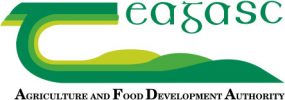
The problem
It is widely accepted that farming is the mainstay of rural areas, as employment in and income form this sector directly benefits the locality. The integration of farming enterprises with related value chains such as agritourism or food tourism would have positive cumulative effects. Thus, an efficient, vibrant and diversified approach is required by farmers in terms of the way in which the farming business is managed and in terms of how the food production business of farming can integrate with other actors in the value chain, in order to provide a sustainable industry in a specific geographical area.The focus here is to progress this strategy through a SMART farming approach. This will involve capturing and using ‘real-time’ data to improve efficiencies in farm management, and in turn improving sustainability in terms of environmental and profitability performance indicators. These improved parameters will act as incentives to integrate the farming sector into more diverse value chains (mentioned above) to leverage different forms of value, for different actors, across the chains.
The solution
The solution to the problem will be addressed with a mixture of technological, social and entrepreneurial innovations!As a first, from a variety of commercially available sensors, a subset will be tested on 6 Ambassador farms, so that ‘real-time data’ can be collected, analyzed and used to develop models and effective decision support tools for farmers. Then, a toolkit of robust, reliable and verified sensors is envisaged, together with the most appropriate local Smart Farming solutions, and this toolkit will be rolled out to a larger farmer group. This toolkit will support farmers in optimizing their businesses, in proving the sustainability/ low environmental impact, and consequently support a high market value for their produce. Furthermore, the data will be used to support new food and food tourism products and services with evidence-based credence attributes, which will be co-created with the local actors (through Enterprise Ireland). Lastly, a brand for the Dingle Peninsula will be built to secure the region as a destination of choice, supported by data proving low food miles and low carbon footprints.
The Innovations
Technological: Selection of tested sensors; more efficient production methods arising from the use of ‘real-time’ data for precision decision-making.
Social: New collaborations across different modalities due to data sharing (food production & agro-tourism). Strengthened social networks in rural areas. New/enhanced livelihoods in a marginalized rural area.
Organizational/Entrepreneurial: New products with novel data providing credence attributes; new forms of marketing supporting the brand of the Dingle Peninsula.
Sustainability

Economic: Increased profitability from improved farm management, increased incomes in associated local businesses, increased local food diversity & security.

Social: Empowerment of local people (producers, entrepreneurs, consumers) as informed decision-makers regarding different aspects of farm management; new creative alliances.

Environmental: Greater carbon efficiency on farms.
The partners






Recent Comments